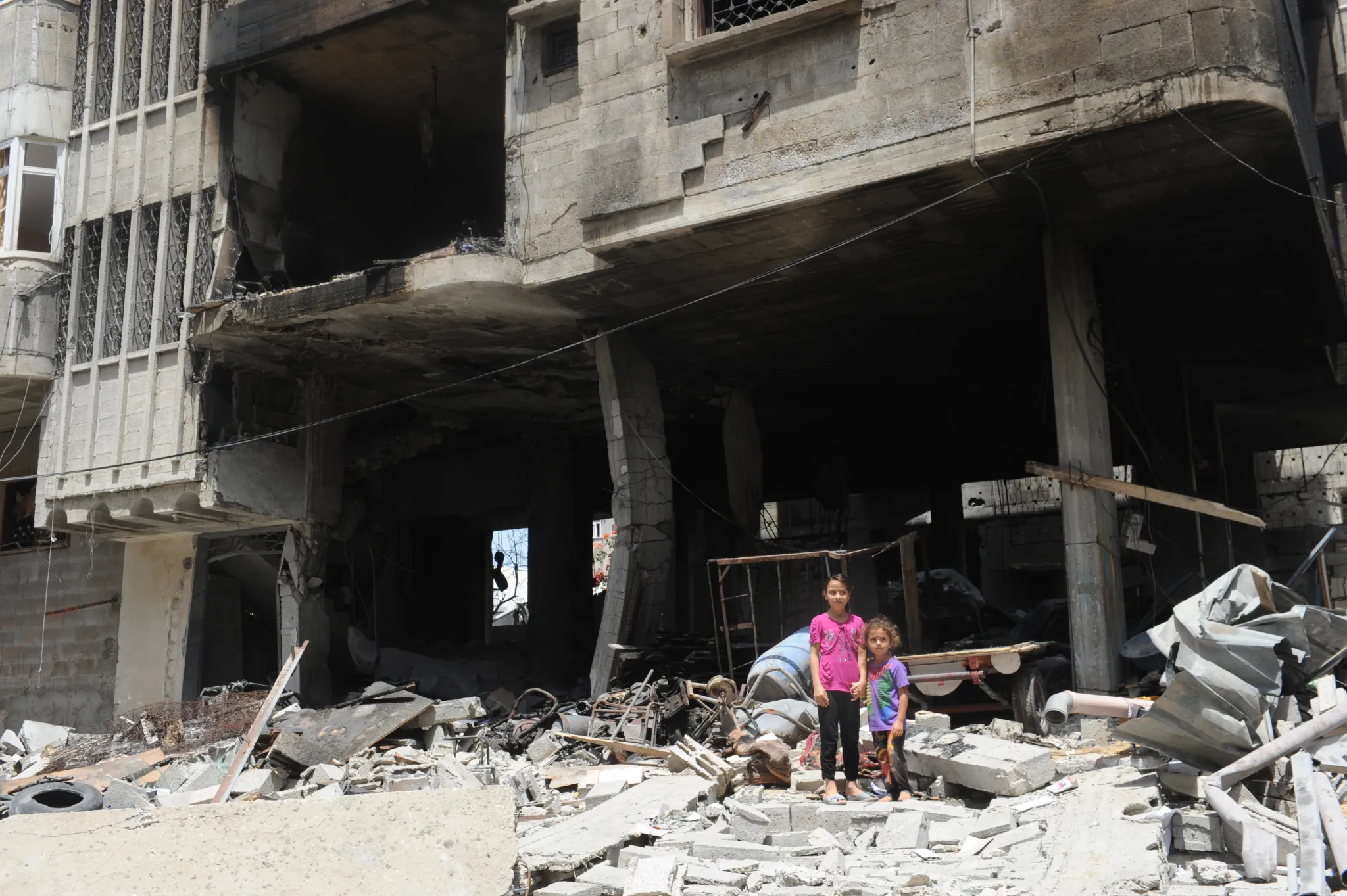Beyond the Battlefield: How gender-based violence in the Israel-Gaza conflict is a reproductive rights crisis

Disclaimer: Opinions expressed in this commentary are those of the authors and do not necessarily represent the institutional position of International IDEA, its Board of Advisers or its Council of Member States.
On the occasion of International Women's Day, the grim reality of the conflict between Israel and Hamas casts a shadow over what should be a day of celebration. The war in Gaza has claimed the lives of more than 30,000 people since 7 October, resulting in the displacement of approximately 1.9 million Palestinians. Women, children, and newborns are suffering disproportionately from the violence, constituting about 70 per cent of the casualties.
In recent applications to the International Court of Justice (ICJ), South Africa highlighted a critical but often overlooked element of the offenses committed by Israel: acts of reproductive harm. These applications accused Israel of breaching Article 2(d) of the Genocide Convention by enacting “measures intended to prevent births within the group with the intent to destroy, in whole or in part, a national, ethnical, racial or religious group”. Amid systematic bombings and resulting humanitarian crises, the significance of the conflict on reproductive rights is profound, resulting in the deprivation of essential rights for women and impacting future generations.
While all states have a responsibility to seek peace in Gaza, nations with feminist foreign policies have a particular role in protecting the rights of women. A feminist approach to foreign policy should prioritize protecting sexual and reproductive health and rights (SRHR). These countries can use their positions in the global community to advocate for responsibility and tangible measures. Gender equality is not possible without reproductive rights for all.
The Violation of Reproductive Rights: New Lives Under Threat
For the women and families of Gaza, the ongoing war is not merely a disquieting reality—it's a violation of their most fundamental human rights, including reproductive freedom. Reports indicate that about 52,000 Palestinian women were pregnant when the hostilities began last October. The devastation of over half of Gaza’s hospitals, along with the limited functionality of the remaining facilities, has led to women giving birth in unsanitary and overcrowded shelters without proper medical assistance. As the war continues, an infant is born under these extreme circumstances every ten minutes, increasing the already high maternal and newborn mortality rates in the region.
Several rights organizations highlight the deteriorating medical conditions, emphasizing the increased risks of death for mothers and newborns. The humanitarian context means that emergency C-sections are being performed without anesthetics, a shortage of sterile medical equipment increases the risk of infection, and women are often discharged within three hours of giving birth. As power outages force hospitals to rely on rapidly depleting generator fuel, the lives of newborns in incubators are increasingly at risk. Critical shortages of essential resources like clean water, medications, blood, and other supplies are further exacerbating the crisis.
The psychological toll of the hostilities also impacts pregnant women in particular ways, including a rise in miscarriages, premature births, and stillbirths. Maternal stress as a result of direct exposure to military conflict has led to premature birth, malnutrition, and dehydration in unborn babies. Statistics indicate that Israeli attacks have resulted in a 300 per cent increase in miscarriages.
Beyond maternal health, women’s health also suffers from the lack of menstrual hygiene products and concomitant infections among women and girls who resort to using unsanitary fabric or clothing during menstruation. Additionally, women face growing exposure to what the United Nations terms "the most ancient, least discussed, and seldom condemned crime of warfare": sexual assault. Similarly, a recent investigation found "reasonable grounds" to believe Hamas committed acts of sexual violence during its attack on Israel.
The breakdown of societal norms, increasing hostilities, and forced displacement heighten the risk of women becoming victims of rape and sexual abuse. As a result, many of these victims encounter the added challenge of unwanted pregnancies. Sexual violence in conflict zones violates human rights and international law, with lasting devastating effects on individuals and communities, impeding post-conflict reconstruction and reconciliation.
Accountability in the wake of a crisis
As the international community navigates diplomatic solutions and aid efforts, it is crucial for policy dialogues to address a wide range of rights violations, including reproductive violence. Governments committed to feminist foreign policy have a particular responsibility to integrate women’s health into decision-making.
Indeed, feminist foreign policies specifically aim to advance gender equality and women's rights, with a strong emphasis on sexual and reproductive rights. They provide a strategic framework for integrating women's rights into government policy and offering focused aid in conflict-affected areas, an approach embraced by countries such as Canada, Chile, France, Germany, Mexico, Netherlands, and Spain.
For instance, Canada's feminist international assistance policy prioritizes SRHR to enhance healthcare access for women and girls. This includes provision of contraception, comprehensive sexuality education, safe abortion, and HIV/AIDS care. In 2019, the Canadian government pledged $700 million to SRHR programs, aligning with feminist principles. France's feminist diplomacy similarly emphasizes SRHR, advocating for universal access to sexual and reproductive health rights to empower women. Priority areas encompass contraception, adolescent SRHR, and efforts against early, child, and forced marriages.
Granting and protecting equal rights for all is the very essence of any democratic system. Achieving democratic institutions and processes that are inclusive and accountable becomes a reality when there is a commitment to gender equality and the active inclusion of women and other marginalized groups, not only as participants but also as beneficiaries of democratic progress.




